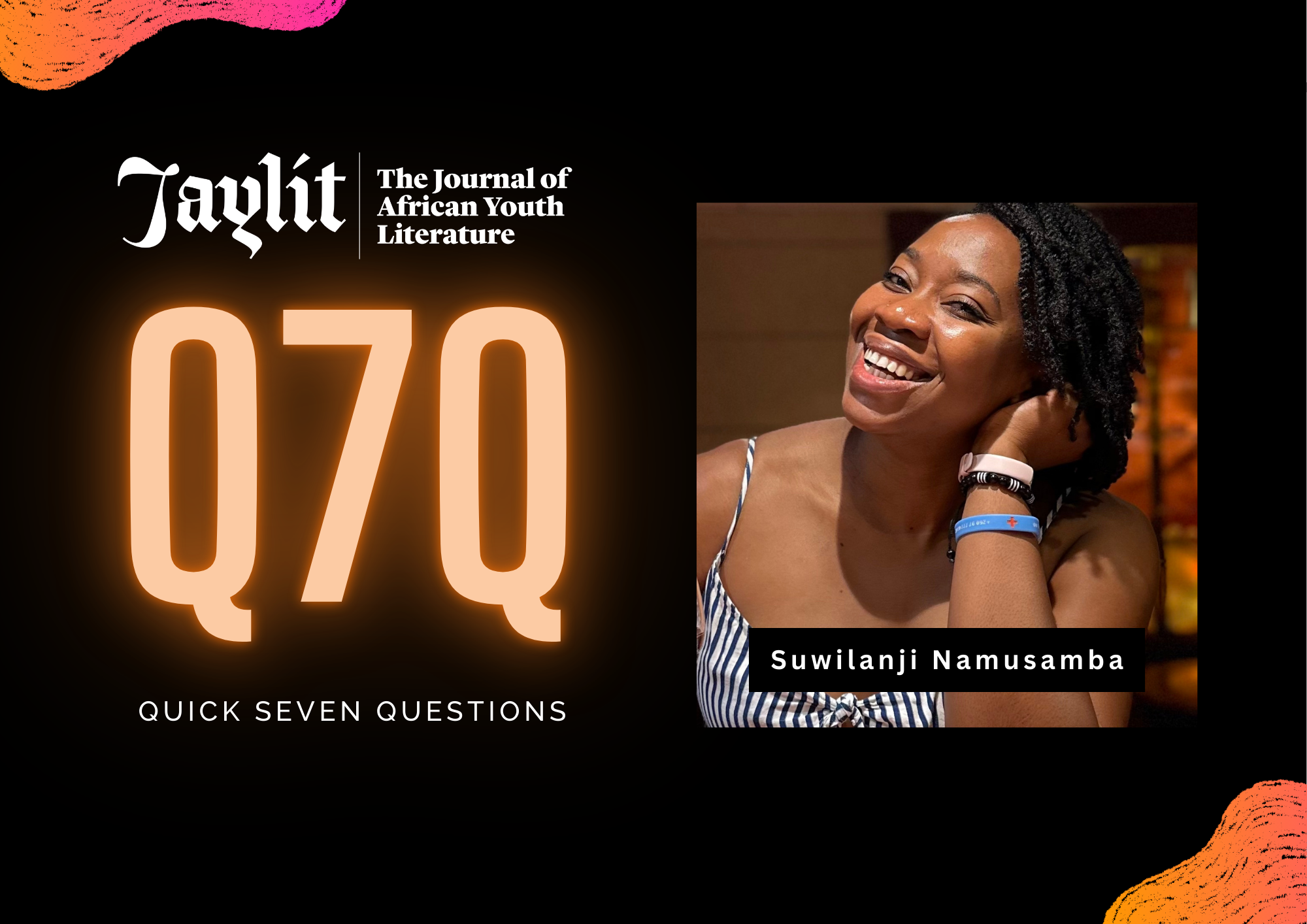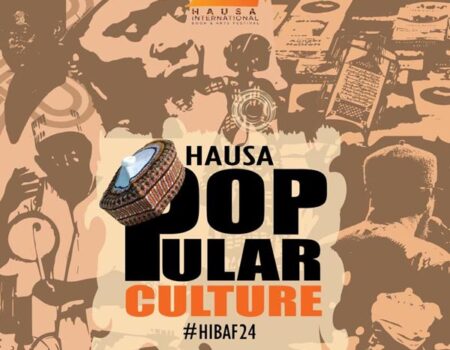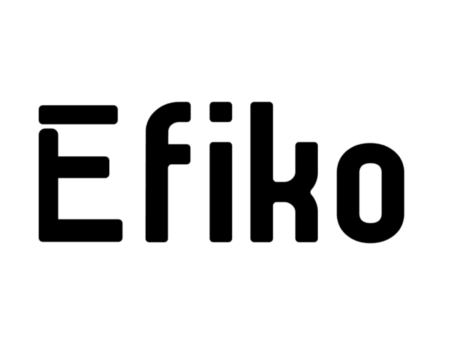Suwilanji Namusamba is one of six Zambian writers shortlisted for the 2025 Ubwali Hope Prize, presented by Ubwali Literary Magazine in partnership with Shenandoah. The winner, who will be announced in a few days, will receive $500 and be featured in the fall issue of Shenandoah.
Suwilanji was shortlisted for her essay, “Thoughtlets on Immersion”, published in Issue 4 of Ubwali Literary Magazine. The essay can be read here.
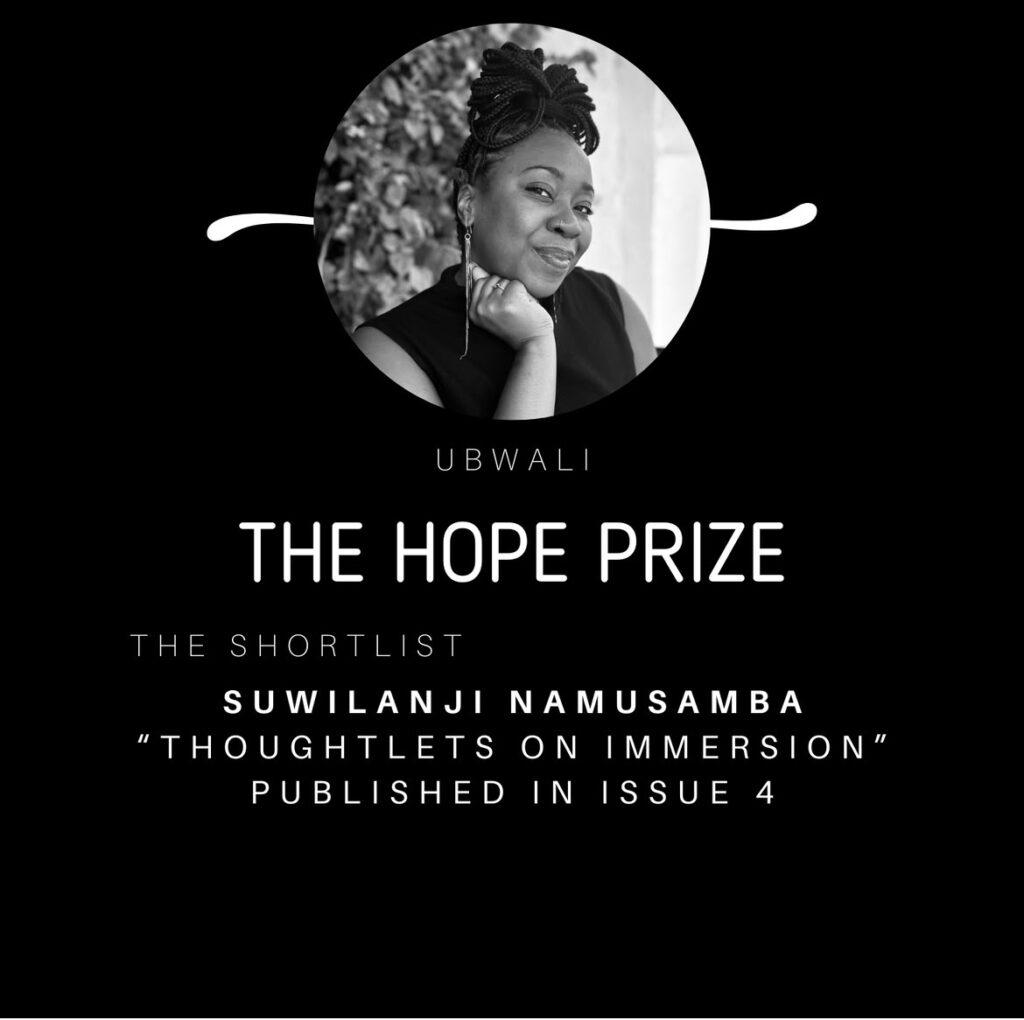
Below is our “Quick Seven Questions” interview with Suwilanji Namusamba.
Enjoy!
~
Q1 – Who is Suwilanji Namusamba?
I feel like I always respond to this question differently, based on my feelings on any given day. I remember saying recently: “I am woman, and that is my full time occupation”. (Haha!) To answer this though: I am a lover of things that set my soul on fire, and that currently includes travelling, reading, writing, taking photos of interesting spaces and things. I’m also a huge foodie (a lot of my photographs reflect that) and I love the culinary experiences that travelling to different places has allowed me the pleasure of. I am definitely the person you will see in the restaurant with eyes closed, doing a little shimmy in my chair when I tuck into a delicious meal.
I’m also a full time lawyer and partner at one of the longest-established law firms in Zambia. My legal work is another part of my life that I am really passionate about, and derive much joy from. I love having a workplace that I enjoy going to, and working with a team of people that motivate and inspire me. I care about and I am a huge advocate for mental health. It is one of the areas of my life that I want to be more actively involved in, on a larger scale whenever I am afforded the opportunity. I also acknowledge that I have a very full and busy life at present, so in my advocating, I have maintained an “each one, reach one” approach, mainly focusing on my close friends, family and church connection group. I have been known to randomly raise mental health discussions in the middle of a Saturday afternoon braii with acquaintances lol! There have been varying responses to that. (Haha!)
Q2 – What is the inspiration behind “Thoughtlets on Immersion [2]”
This essay was an exploration of my relationship with water, and came together as I was unpacking the oscillating love/fear emotions around being near and in large water bodies. It started off more as a means of using the tools I have learnt in therapy to figure out my actual thoughtlets (I think better “on paper”), and then it evolved into this essay. The essay has been published, but I feel like I will add to the writing whenever I experience water, and I can’t wait to see how that will evolve over the years.
Q3 – What hopes did you have for the essay when you were submitting it to Ubwali Literary Magazine?
I submitted this essay for consideration not really sure where and if it would be a good fit for publication, because I tend to write more poetry than creative non fiction, so I wasn’t sure how it might be received. I realised, as I was writing, just how many of the water bodies I had experienced were in Zambia, and I hoped that it might be an opportunity to encourage other people to see more of these spaces. I remember during the editing process adding more descriptions about each of the places I was referring to, and at times pushing back because I didn’t want my essay to start reading like travel writing. I wanted people to have to do their research about the places, to be curious about where they were and what they looked like, because I wanted the essay to be read actively and not just passively.
Whenever I’m reading a book I always pause when I come across places that I have never heard of before, or words I am encountering for the first time. I find myself on Google to find out more information and facts, or I take to YouTube to watch videos of places, events etc. Just yesterday, as I was finishing Chimamanda Ngozi Adichie’s Dream Count and reading the Author’s Note, I found myself spending almost an hour reading up on the real life events that inspired one of her character’s stories. Basically, I hoped that the essay would resonate with whoever would ultimately read it – that juxtaposition of emotions, even if it wouldn’t be chosen for publication. Sometimes the audience of one – the editor – is enough. The fact that the essay was published and has now been shortlisted for the Ubwali Hope Prize is still surreal, to be honest. Being on this shortlist is this wonderful unwrapping of an unexpected and welcome gift.
Q4 – What does ending up on the Hope Prize shortlist mean to you?
Honestly, I hadn’t even considered it as a possibility, especially that seeing my writing published at all is still a fairly new experience for me. It’s so exciting to see my work appreciated and I feel motivated to share more. I admit that my breath caught in my throat and then I did a proper gasp when I was informed. Not just because I was shortlisted, but also seeing the other amazing and talented shortlistees. It’s almost like I felt a whisper from deep within myself saying: “See? Told you to keep at it!” I haven’t stopped smiling about it.
Q5 – What would winning mean to you?
There’s a lot for me to think about with this question. The main thing is that I am still not sure what that might actually feel like, because just seeing my work appreciated and published has me over the moon. The biggest thing that this entire experience of having my work read has shown me is how good it feels to get feedback from people when it feels like they want you to succeed. As I went back and forth in edits before the publication, I realised just how much I appreciated, more than anything, a chance to improve, a chance to communicate better.Winning this Prize, I think, will be a reminder to me that I really can be more than one thing, that I am not boxed in by my career choice. There’s something I said in the shortlisted essay: “It makes me think that maybe in that way, I am like water, because I can be many things in different places and many people get to experience different parts of me.” I really feel like this will be another state of being for me, another step in realising what other shapes I can take for this season of my life. It will also be a win for younger me, who didn’t stop picking up her notepad and scribbling ideas in there.
Another highlight, if I were to win, would be seeing my essay featured in Shenandoah. I remember in about August 2023 saying “I’ll submit to Shenandoah one day”, and finally did about a year later. The piece was a version of this essay and, at the time, it was not what they were looking for in relation to that particular call for submissions. I’m pretty sure that if I were to win this, I would scream out loud with excitement, wherever I was, because what better way for the universe to say: “don’t give up”, right?!
Q6 – How has this changed, inspired, motivated, or improved you, the writer?
I have to address this by answering each part of what you’re asking, because the answers are different.
The changes as a writer have definitely come from the joy (and pain) of feedback and critique. Since I started submitting my work to publications, about 3 years ago, I have received countless versions of this: “Thank you for giving us the opportunity to consider your work. Unfortunately, we don’t feel it’s a good fit for our journal.” The “we regret to inform you…” responses actually don’t faze me as much anymore because between visas, masters programs, scholarships…I have had to learn that rejection is just part of the journey to a later “Yes” or a “Something better is coming”. What I didn’t expect was the exhilaration I would feel when I was actually getting real feedback about my work, even when it was criticism. That is what has triggered some major changes in my writing and how I communicate using my words.
Inspiration always comes in when my writing finds a home, because I get to experience other writers as well. I read all the published pieces from the other shortlisted authors and I felt an actual surge of creativity hit me with every read. I also enjoyed reading interviews from each other talking about their inspiration. It felt like community.
What motivated me, was not just being shortlisted, but realising that the piece that was shortlisted was outside what I feel is my comfort zone – poetry. There is something so immersive about an essay that stirs up in me the same feelings that water does, and I just realised that now as I was responding to your question. I should explore that.
I have improved as a writer through this experience because of the earlier mentioned feedback. I cannot say enough how, when you don’t exactly exist in constant communication with other writers and don’t have people readily available to read and critique your work, it is very easy to find yourself content in a small bubble. I love the challenges and the breadth of experience that can come from other readers and writers. I admit that there were some edits I gave some pushback on and it was interesting to see where I felt that I could not bend. I am happy to see that the end product felt like an authentic reflection of what I wanted to share with the essay. I am so grateful to the Ubwali editors for their patience in that regard.
Q7 – What future plans do you have for your writing?
Whenever I get a spark of inspiration, my notes app is open and I am dictating or tapping furiously away. I have a poetry chapbook in edit that I have been arranging, rearranging and adding to for a few years now. I also completed a novelette that I might turn into a novel. My biggest and most daunting project, however has been working on my memoir which remains a big test of vulnerability. The more non-fiction I read from other African authors, the more confident I feel that this will be worthwhile, and that sharing it will push me into exploring more of myself.
Outside of these three projects, I am just writing every moment I feel inspired, which is often. About anything and everything. Now that I can see how easily an essay can unfold in my mind, I have been more confident in just diving in with ideas without having to conform to fixed formats sometimes demanded by poetry. I am definitely in that phase where I feel like a bubbling brook with a constant flow of thoughtlets and ideas. I love that I am also revisiting some of my past work and enjoying transforming some of those pieces too. The goal, I realise, is not always to publish, a reminder I needed from the version of myself who had never submitted anything before. I have noticed that I am flourishing again in creating just for the sake of the joy of art.
~
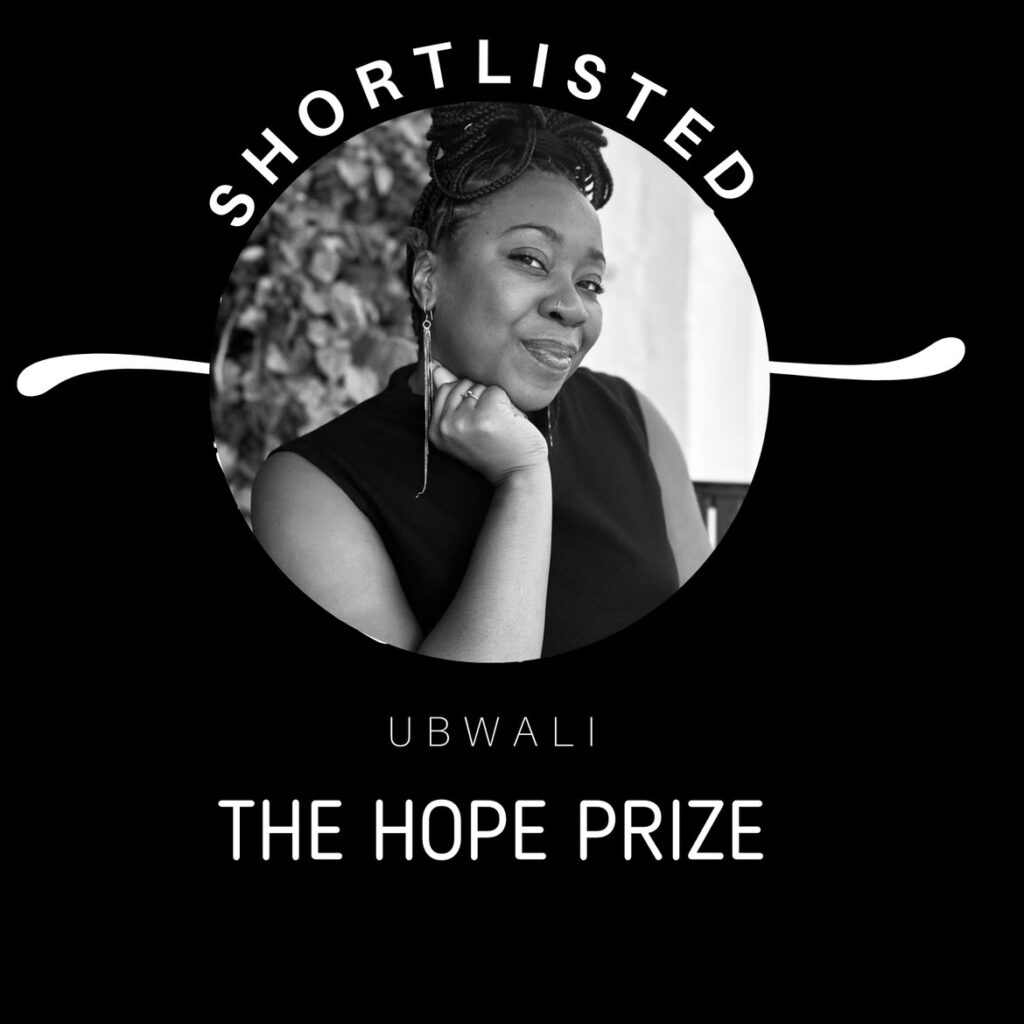
Suwilanji is an avid reader, foodie, writer, traveller, and shutterbug. In 2001, she was one of the winners of the ANTOA Writing Contest, awarded for her poem “Dusk: Earth Rising”. Her poems appearedin Ubwali Literary Magazine‘s inaugural issue, including an ode to happy-ever-after called “Dear Future Ntwenukané”, and her essay entitled “Thoughtlets on Immersion” reflecting on her relationship with water, was featured in its fourth issue. Her love letter, “My Avocados Are Made of Gold” was featured in Bold Ambition’s 2025 anthology Lover’s Rock. She is currently working on a poetry chapbook, her memoir and a work of fiction.
She pays for her expensive habits with her other guilty pleasure, being a full-time lawyer. She holds a Bachelor of Laws degree from the University of Zambia and a master’s degree in international commercial law from the University of Leicester (UK). She has worked in private practice, primarily civil and criminal litigation, since admission to the Zambian bar in March 2014. In April 2020, she became the first female Partner at her firm in its then 52-year history. Suwilanji is a keen mental health advocate and aims to keep winning aunt of the year for teaching the little munchkins in her life how to swim. You can see snapshots of her adventures on Instagram: https://www.instagram.com/joytotheswirls/



